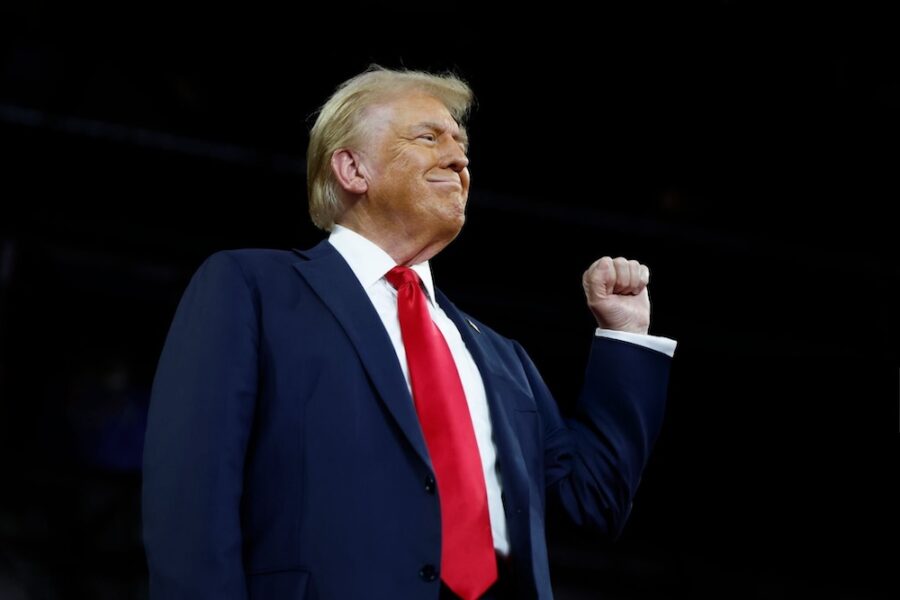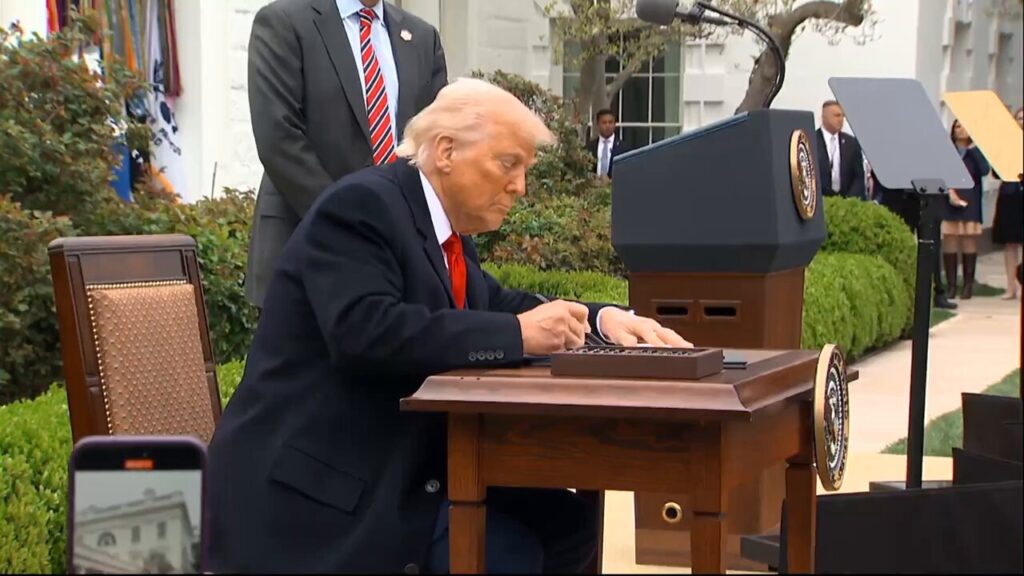Politics
Trump’s Approval Rating Surges To New Record High, Poll Finds

President Donald Trump’s approval rating has surged to near record highs despite several days of hysteria from Democrats, establishment Republicans and mainstream media outlets alike over the president’s ambitious trade reforms.
According to a new poll conducted by J.L. Partners in conjunction with the Daily Mail, which surveyed 1,000 registered voters between March 31 and April 3, found that Trump’s approval rating surged even after sweeping tariffs were placed on dozens of trading partners on April 2.
The survey found that Trump’s approval rating climbed to 53 percent, a four point increase over last week’s poll, when it was at 49 percent. The Daily Mail described the result as “surprising” given the relentless pressure and stock market rout that occurred on Thursday and Friday.
Breaking down the results further, Trump’s favorability rating among voters between the ages of 18 and 29 increased by an astonishing 13 points since March 7. The poll suggests Trump is expanding on the massive support he received from the demographic in the November presidential election, when voters between the ages of 18 and 29 shifted 10 points in Trump’s direction after overwhelmingly backing Joe Biden in 2020.
The president even saw a sizable uptick of six percentage in approval from registered Democrats and independents, the survey found. Among black voters, the president’s favorability skyrocketed by 17 points since last week’s survey.

Trump enacts “Liberation Day” tariffs on dozens of trade partners on April 2
When asked about Trump’s policy of applying universal, 10 percent tariffs on all goods entering the U.S. from other countries, a majority of respondents expressed support for the policy. A little more than a third of respondents, 36 percent, said they approved of the policy, while just 28 percent were opposed. An additional 36 percent remained unsure.
Respondents also endorsed the idea of increasing tariffs on all imports, albeit by a tiny margin. In total, 39 percent of registered voters support the idea of raising tariffs while 37 percent opposed. The remaining 24 percent were undecided.
Support for tariffs also appears to be increasing, as respondents warmed up to the idea of tariffs on China and the European Union when compared with last week’s poll. Registered voters also “broadly” expressed support for tariffs in specific sectors such as steel, iron, precious metals and aircraft.

A number of Trump allies and pro-tariff economists have speculated that the majority of tariffs will only remain in the short term as U.S. trading partners come to the negotiating table.
On Sunday, Taiwan announced that they are working to remove all tariffs and barriers to trade in the United States. The island nation is also pledging to rapidly increase its investment in the United States, including a $65 billion investment in three semiconductor plants in Arizona.
The tariffs do not apply to semiconductors, however, providing relief for a major Taiwanese export. As of 2025, Taiwan accounts for 60 percent of the world’s semiconductor manufacturing, and nearly 90 percent for the most advanced ones.
Vietnam has also directly reached out to Washington in order to discuss a zero tariffs policy, while India, Israel and a number of smaller economies have already pledged to do the same.
U.K. Prime Minister Keir Starmer is also working to nail down a new trade agreement with the United States, which has failed to materialize post-Brexit. Starmer has conceded that Trump’s tariffs policy is “understandable” and is expected to tell the nation that globalism has “failed” later this week.

